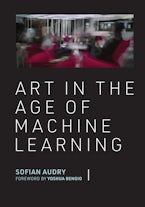A multidisciplinary introduction to the field of computational creativity, analyzing the impact of advanced generative technologies on art and music.
As algorithms get smarter, what role will computers play in the creation of music, art, and other cultural artifacts? Will they be able to create such things from the ground up, and will such creations be meaningful? In Beyond the Creative Species, Oliver Bown offers a multidisciplinary examination of computational creativity, analyzing the impact of advanced generative technologies on art and music. Drawing on a wide range of disciplines, including artificial intelligence and machine learning, design, social theory, the psychology of creativity, and creative practice research, Bown argues that to understand computational creativity, we must not only consider what computationally creative algorithms actually do, but also examine creative artistic activity itself.
After describing the state of the art in computational creativity—including past and present cycles of hype—Bown examines the psychology of creativity and how it may be amenable to algorithmic automation. He considers human creativity as a social phenomenon that depends on such factors as position within a social network and group identity. He reviews the existing algorithms for the production of computer-generated content, examines issues of interaction design, and explores paradigms of computational creativity; considers the evaluation of computationally creative systems, addressing the difference between the analysis of systems as creative agents and as creativity support tools; and, looking to the future, discusses the social implications of the consumption and experience of generated art and music.







